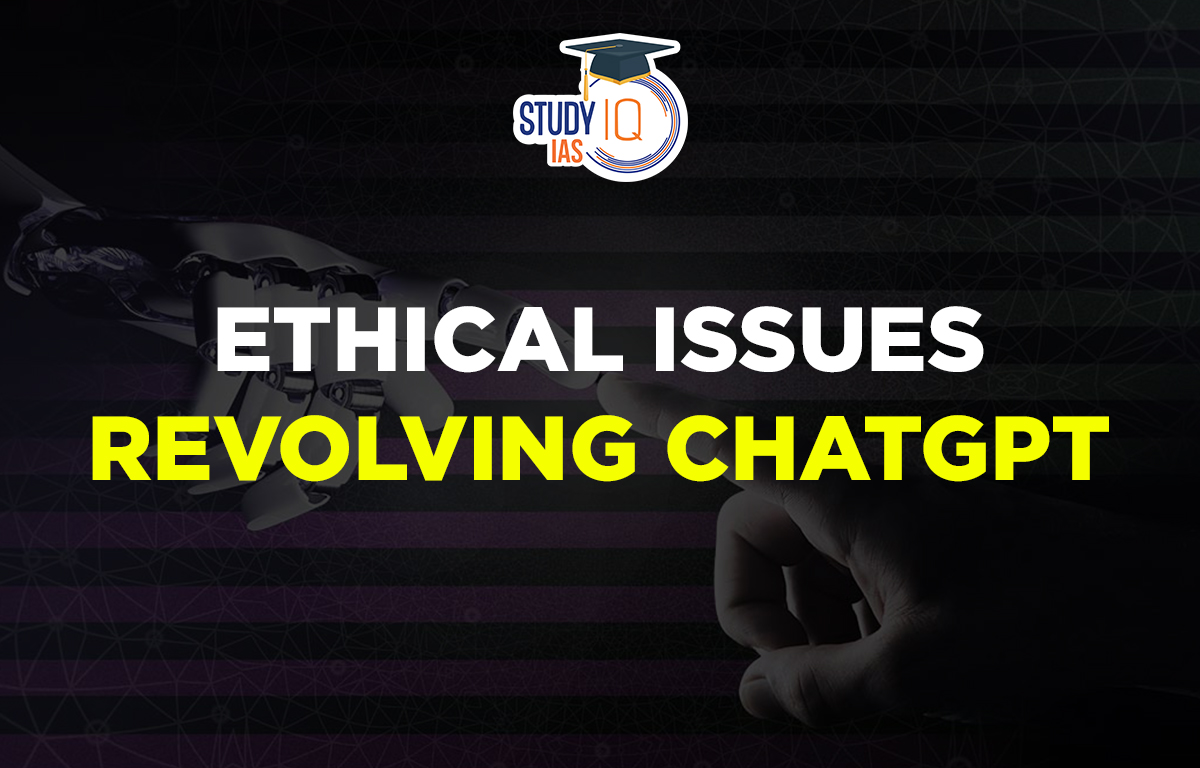Table of Contents
Context: ChatGPT has gained a lot of popularity since its launch; however several have expressed concerns over its use.
What is ChatGPT?
- ChatGPT (Chat Generative Pre-trained Transformer) is a large language model launched by OpenAI in November 2022.
- Language models are a type of machine learning model that is trained to generate text.
- It has been trained on a massive corpus of text data, which is believed to be in the range of hundreds of billions of words.
- Technical principle: ChatGPT is based on the GPT-3.5 model, which is one of the largest and most advanced language models currently available.
- Generative Pre-trained Transformer 3 (GPT-3) is an autoregressive language model that uses deep learning neural networks to produce human-like text.
- Applications of ChatGPT:
- Text generation and Summarization: It can be used to generate new text, such as writing new articles, stories, or poetry and to summarize long documents or articles into shorter versions.
- Language Translation: ChatGPT can be used to translate text from one language to another.
- Chatbot: ChatGPT can be integrated into the chatbot, which would allow an end-user to interact with the bot in natural language.
- Sentiment Analysis: ChatGPT can be used to analyze the sentiment of a text and classify it as positive, negative or neutral.

What are all the Concerns Associated with Language Models such as the Chat GPT?
- Bias: ChatGPT is trained on large amounts of text data, which may contain biases. This can result in the model replicating and amplifying these biases in its responses.
- Privacy: Language models such as ChatGPT have access to vast amounts of data, which can include personal information about individuals. There are concerns about how this data is collected, used, and protected.
- Misinformation: They have the ability to generate text that appears to be written by a human, which can be used to spread misinformation.
- Plagiarism: Plagiarism in academics is not a new issue, but ChatGPT has altered how AI is utilized to produce original writing. It is difficult to identify plagiarized information as a result.
- Job displacement: Language models have the potential to automate tasks that were previously performed by humans, which could lead to job displacement.
- Cyber threats:
- Malware coding: ChatGPT could be used to generate malicious code or scripts, which could be used to spread malware or launch cyber-attacks.
- Phishing: It could be used to generate convincing phishing emails or messages, which could be used to steal personal information or financial data.
- Spam: Language models such as ChatGPT could be used to generate large amounts of spam content, which could be used to flood email inboxes or social media feeds.
- Misuse of chatbot: ChatGPT can integrate into chatbots, which would allow an attacker to interact with human in automated manner in order to gain access to sensitive information.
Way Forward
- Data hygiene: Ensuring that the data used to train language models is diverse, unbiased, and accurate can help to mitigate the risk of replicating or amplifying biases in the model’s responses.
- Transparency and explainability: Developing ways to make language models more transparent and explainable can help users understand how the model works and how decisions are made, which can increase trust and accountability.
- Monitoring and regulation: Regularly monitoring the outputs of language models and putting in place regulations to control the misuse of language models can help to mitigate the risk of spreading misinformation or malicious content.
- Cybersecurity: Implementing measures to protect against cyber threats, such as firewalls, intrusion detection systems, and two-factor authentication can help to mitigate the risk of cyberattacks.
- Ethics and governance: Establishing ethical guidelines and governance structures for the development and deployment of language models can help to ensure that they are used responsibly and in the public interest.


 Securities Markets Code Bill 2025: Towar...
Securities Markets Code Bill 2025: Towar...
 Weakly Interacting Massive Particles (WI...
Weakly Interacting Massive Particles (WI...
 India–Oman Trade Deal: CEPA Signed to ...
India–Oman Trade Deal: CEPA Signed to ...

























